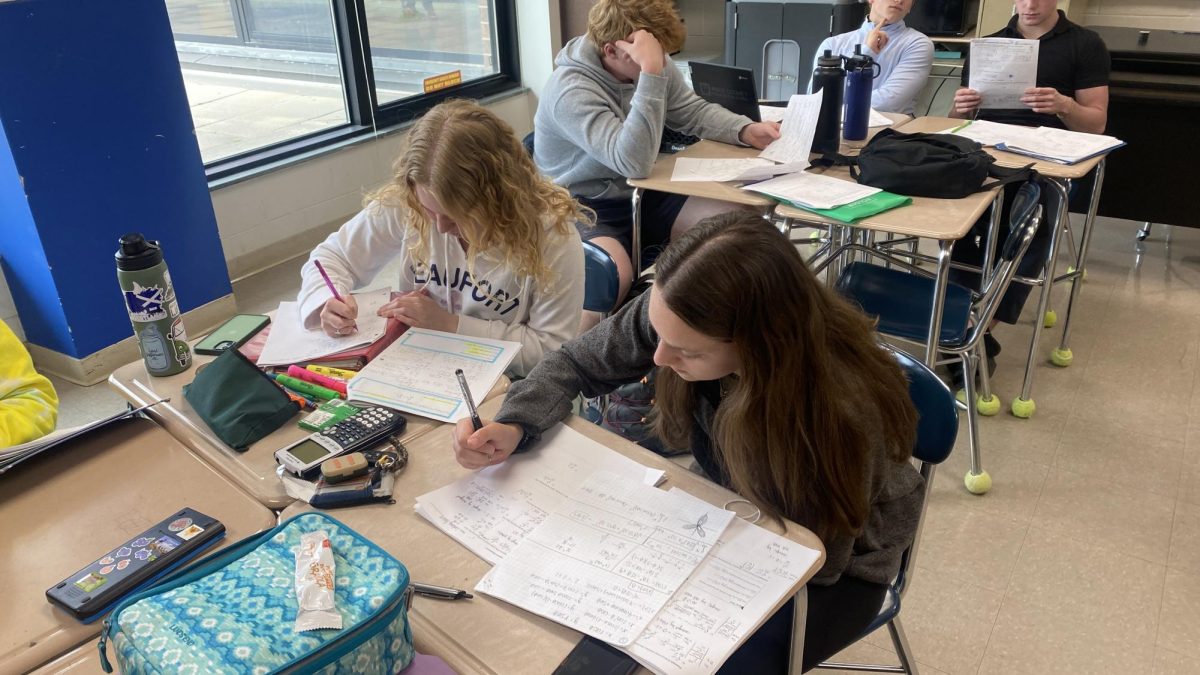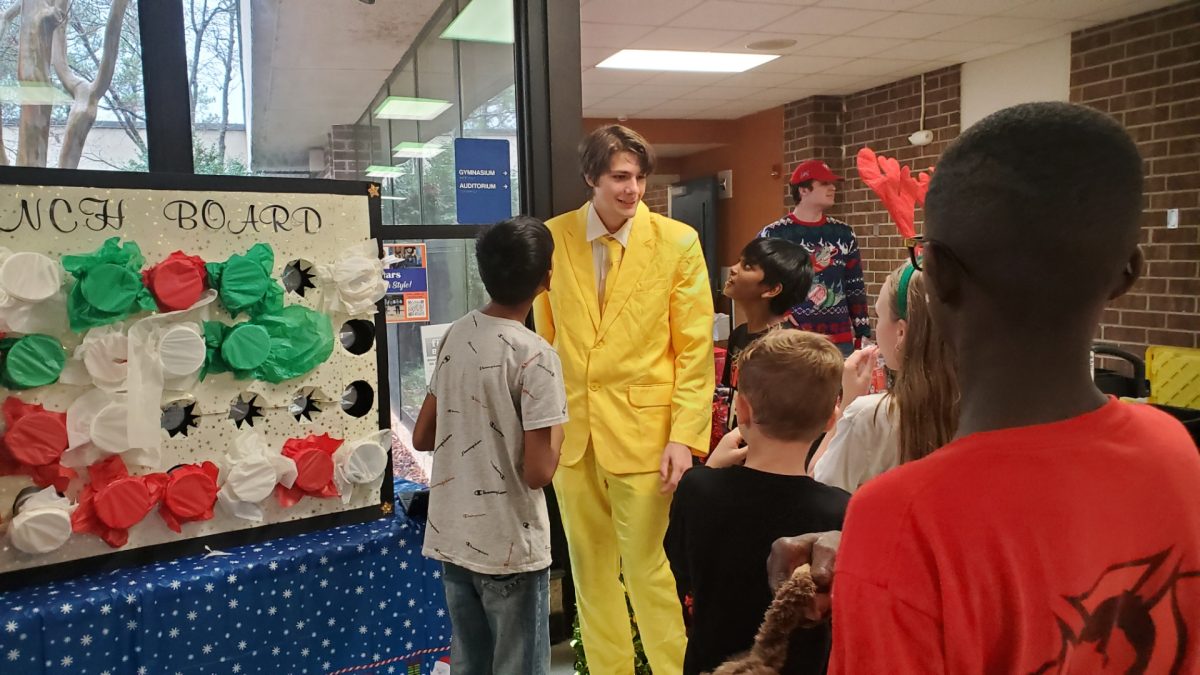My name is Manon Bedouet, I am 18 and I am an exchange student from France. You probably did not know what an exchange student is; I did not know what it meant to be one a year ago.
I first heard about it through a friend. Her sister spent an entire year near Chicago, Illinois. She was staying with a host family and was going everyday to an American high school. I just thought it was so cool and wanted to participate in it. I started to look on the internet, and I found hundreds of organizations who were offering to spend a semester or a year in almost every country. I could have chosen Spain, Ireland, South Africa, New Zealand, Japan or Argentina… but I chose the United States. Then I had to complete and build a very long file with basic information, medical background, teacher recommendations and grades over the years. I also had to write motivational letters and go to the doctor to take more than ten shots for diseases that were not existent in Europe anymore. I finally completed the file and three months after, the organization called me to tell me that a family in North Carolina selected me. Students are distributed all over the country, including Hawaii and Alaska. They can not choose their families or where they are going to stay. In fact, the families are the ones who choose the students.
However, I still needed to get the most important thing; a visa. The visa I needed was the Visa J-1. This visa was created with the Mutual Educational and Cultural Exchange act of 1961. In fact after the war, the United States decided to allow foreign nationals to temporarily reside in the United States and participate in an exchange. One of the goals of act is to develop relations between the United States and the other countries of the world. Every year, approximately 450,000 visas are given.
Participating in an exchange program costs between 6,000 and 15,000 dollars. Nevertheless, it is totally free for some students. In fact, United States wants to tighten its links with eastern europe countries such as Ukraine, Russia but also with muslim countries. That is why they give scholarships to the students from these countries; to incite them to come. In return, those exchange students have to complete voluntary hours.
“I did not have to pay to come here, which I think is one of the greatest things, and I am given some pocket money every month,” explained Monika Gagoshidze, Georgian exchange student.
It is part of the exchange program to inform about their culture. Athens Drive hosts about eight exchange students every year and almost all them have to do presentations about their country in their class. People are most of the time very curious about exchange students and they ask a lot of questions. Some of them are funny for the exchange students.
“Somebody asked me if we live in igloos. I was like: I live in an apartment and I have electricity,” said Sigrid Solheim, Norwegian exchange student.
Being an exchange student is starting a new life all over. The first days are often really tough; everything is different, starting with the language. Most of the associations recommend to go to the U.S. one or two weeks before the beginning of school to get accustomed to the language. I remember sitting in the car with my host family just after arriving in the U.S., not understanding anything. I studied English at school but british english, not american english, and the accent was very hard to understand for me. I would just smile at them. Later, I discovered that americans were using the same trick. I used to think that I was funny but I quickly realised that american were laughing at my jokes only because they were not understanding them. The language is particularly rough at school since specific vocabulary is used some classes such as maths and science.
“I remember sitting in Pre-Calc and not understanding anything since I had math in Norwegian. Same for Physics. I was like OMG, that’s going to be interesting…”, said Sigrid.
For some some exchange students a year abroad is not recognized in their country, it is a gap year. This was the case for me. I just took the classes I wanted to. However, all exchange students have to take English and American History. For the rest of the exchange students, the requirement list for the classes is a bit longer.
“My year is counting and I have to have the same classes that I would have in Norway. Obviously I can’t take norwegian. I have to take English three at least, Math classes that are the same level as in Norway, a physical education class, Physics, American History, and Spanish. I only chose to have digital media and chemistry,” said Sigrid.
All the exchange students agree to say that school in the U.S. is easier than in their country. First school days are usually longer. In France, I used to start school at 8:00 a.m. and finish at 5:30 p.m. All the students have the same classes that they study during the entire year. Among them French, English, mathematics, history, civics, geography, physics, chemistry, biology and geology. They also have to choose another language. It is usually spanish or german. All the fun classes such as art are optional and add hours to the existing schedule. Moreover, the order and the length of the class is different every day.
I decided to not weigh myself before leaving, because I knew I would gain weight. One of the main stereotypes that we have in Europe is that American people are fat and eat fast food all the time. That was partially right. I noticed that American people go out more often to eat. Especially teenagers. In fact, a lot of people go off campus for lunch and go to Moe’s, Bojangles, Cookout … Even if students stay at school, the food offered by the cafeteria is no better. I was surprised about it. In my school in France we have a kind of restaurant with a starter, a course, a dairy product, a dessert and bread. However, I do not think people here are overweight. That probably comes from the fact that they participate in more sports. Additionally, something I noticed here was that sports have great importance in the USA, especially at school. A lot of the American students stay for after school activities like football, soccer and lacrosse every day. We do not have that in Europe. There are not sports teams at school. People who want to do some sport have subscribed to a club outside of school.
“I gained a lot of weight, which is definitely not good, but I guess it’s part of living the American experience!” said Marwa Afechkar, Moroccan exchange student.
When people think about leaving your country for a long period of time, they often think about homesickness. The culture shock is experienced by 38 percent of the exchange students. An exchange year can be divided in three phases. The first phase is called the honeymoon phase. During this short period of time, the exchange students are excited and fascinated by their new environment. The second phase is the culture shock. The honeymoon is over and the student feels very different. They experience loneliness, sadness and feel hostile toward their host country and people. The cultural shock often lasts a few months. The last phase is called the acceptance phase. The happiness begins to return as routines are established. They learn to understand things a lot more.
“I miss my family and friends. I miss having good times with them. But the problem is that when I go back to Georgia I will miss my American family and friends,” said Gagoshidze.
A lot of the exchange students do not realize how tough this program is before leaving. They just think about the “fun part” of it. They believe that they will have the same life that they had in their country in the USA and are often disappointed. Some exchange students do not finish their year and go back in their country before. It usually occurs during the first months of the program. To avoid that, the associations test the exchange students on their motivations before leaving for a year. However, some of the exchange students do not choose to go home but are sent back home. There are a lot of rules that the exchange students have to follow. Not respecting these rules means being sent back home. First of all, the exchange program is an educational program and all the exchange programs have to maintain a C average in all their classes. Moreover, they can not drive even if they have a licence, they have to respect the laws (do not smoke, drink alcohol, or use drugs), and their host parents always have to know where they are.
A lot of students do not go back home before the end of the program but change their host family. The families are totally volunteering; they are not paid. They all are different. It can be retired people, single parents, with or without children. Nevertheless, all the families have a background check in order to host. It is most of the time just an affinity problem. The families and the exchange students have to get along well and the difference of culture is sometimes a problem to understand each other.
Everybody can not be an exchange student. It requires abilities such as adaptability, positivity and self-confidence. You put yourself in danger. Nevertheless, being an exchange student is an amazing experience. I think that I have learned a lot of things, especially about myself. I discovered I am a lot stronger than what I thought and how much I love my family. I have also made very good memories here and have met amazing people.
“This whole year is definitely one of the highlights of my entire life. I think everyone should experience it,” finished Gagoshidze.






